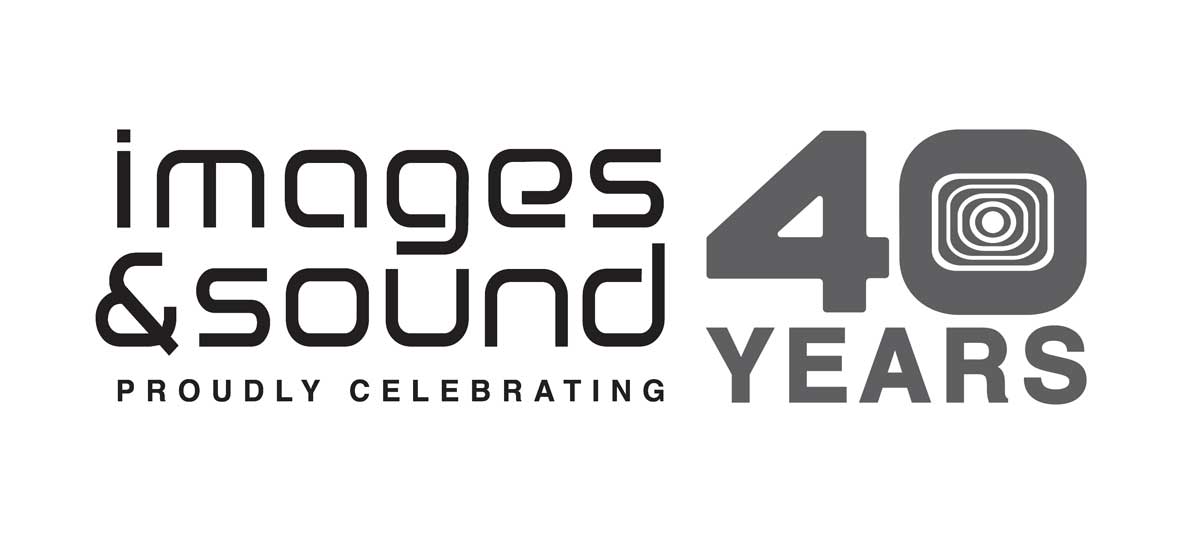Event Summary: A Spirit of Independence with Jake Mahaffy, chaired by Alyx Duncan, Auckland Writer’s Room, Tuesday 28 May 2013, The Classic, 321 Queen St, Auckland, 7:30-8:30pm, see the event listing here, and a video of the session here
Sure they can. Just ask innovative US filmmaker Jake Mahaffy whose shorts and micro-budget features have screened in A-list festivals all over the world. His project War, which he wrote, shot, directed, edited, and produced, screened at Sundance in 2004, and earned him a spot in Filmmaker Magazine’s 2005 ‘25 New Faces of Independent Film‘. He went on to make the micro-budget feature Wellness, which won the Grand Jury Prize at SXSW in 2008. His work has been called a ‘… a textbook case of how a solid script and great performances can transcend the lowest of budgets’ (Variety 2008) and the May Writer’s Room was fortunate indeed to have Jake in discussion with Alyx Duncan.
Alyx described Jake as an’ incredible film maker who produces his self-made films in a ‘handmade’ and independent way’, creating stories that have reached audiences around the world. Jake developed and established two film making programmes at American universities as an Associate Professor, and now teaches at Auckland University.
Jake and his family arrived in New Zealand about four months ago and he is impressed with the filmmaking culture here. “It seems to be the perfect environment to create innovative films. I’m still learning about it but it sounds like the Film Commission is great. There is nothing like it, on that scale, for filmmaking in the USA.”
Jake is well known for creating strong and honest character-driven films without the benefits of large budgets. First up for discussion was Miracle Boy, a 17-minute film based on a short story by writer Pinckney Benedict, a close friend of Jake’s. “It was shot over six days in West Virginia,” said Jake. “I wanted to knock out a short film and move on to other things. The original Miracle Boy story is excellent. I showed up in Appalachia where the story is based, used local residents – no actors – spent five days finding locations, getting a cast together, shot it in six days, edited for just under a year and then sent out rough cuts to a couple of festivals.” The film premiered at the 2012 Venice Biennale.
Pinckney Benedict is an award-winning writer and a local celebrity so the film project generated much community interest. Jake held a public info session at a local theatre and about 50 people showed up. “A co-producer, Jason Brown, put out flyers and blurbs in the local paper. A film had never been made there before so people really got behind it. Some offered set locations. I didn’t do auditions. I just talked with people. With this kind of filmmaking you use anyone who is willing and able.”
Jake needed to find children for the main roles and gave copies of the script to parents so they could approve their child’s involvement. “I never expect kids to remember the lines. I give them some idea of what is going on in the scene and feed them the lines as we go. ” Jake would direct, shoot, do sound, and prompt lines from behind the camera until he captured the performances he was after.
He said it was a pleasure to write the script because the story on which it was based is very tight. “The adaptation was mostly just visualising it. I know, for me, that when shooting, the screenplay is the first thing to go. I don’t hold on to scenes and dialogue as they’re written on the page. It’s more about what is available for the film at the moment in real life. The film is about that moment. The screenplay was the excuse to get people involved and to get the images I wanted. I try to fit things around what is available and that can be tough- it takes a facile mind to manage that process. You have intention and a belief in your original concept but must adapt to what is right in front of you, not what is stuck inside your head. You know going in that you won’t get exactly what you want … but you hope for something better.”
Alyx asked about Jake’s ongoing relationship to his completed films. “I care about the films. But I am not in control of what happens when they’re finished. Once the film is made, I can’t make people watch it or like it. So I’m willing to forgo that. A film takes so much time and effort to make, I cut my losses and just skip out on the exhibition end of things.”
Wellness began as a learning exercise for writing naturalistic dialogue but ended up generating enough material for a film. “I learned to let my ear tell me what was authentic. Working with untrained actors meant I didn’t have to deconstruct bad training. They were there because they enjoyed the process – it wasn’t about a paycheck or fame and fortune so I was able to say, ‘ Let’s do it again’ and they were willing. It does take confidence to insist on getting it right and keep shooting. I didn’t have a crew but that meant we could keep working until we got it right. It was never a case of someone demanding ‘Hurry up!'”
The central idea of Wellness involves a man who tries to sell something that does not exist, a financial scam. “The lead character of this film is based on a synthesis of people I’ve known. He was the only performer that could commit to the project long-term so I built the narrative around his episodic encounters with other people that may only show up for an hour or two. I shot it single-handedly, no crew, and edited it myself. To trick myself into getting involved in a feature film project, a massive endeavor, at the start I had to pretend I was just ‘screwing around.’ ”
The film was shot over twenty days during a two year period. ” I would shoot for a week or so, go back home, edit, then determine what I needed to change, refine, pickup, get more of. I sculpted the film over time, a great way to work if you can afford it, not having to cram it all into a 30-day shoot. But two years was a big commitment.”
There is a process of discovery for Jake in the film making process. “Having a script and then illustrating the plot with pictures on set is mind-numbingly dull to me. But as a director not knowing what is going to happen next, and the anxiety and excitement of trying to pull something together that is falling apart as you’re making it- that tension should translate to an audience. You won’t broadcast your intentions. It’s less deliberate and formulaic because I’m trying to keep up with the story myself. All bets are off. Go in with a plan but having that constant tension of holding things together was helpful for me. When you take what you have written and shoot it, there are limitations imposed on you and that is a good thing. When shooting and editing I always prioritise the performances of the actors. It’s not about people saying the lines right according to what was written. I focus on the performance and the character’s spontaneity.”
Jake came to film via visual art and drawing. He attending arts school in Chicago and studied filmmaking at RISD and the Russian State Institute of Cinematography in Moscow. The USA has a strong independent film culture and Alyx asked how this had influenced his work.
“There are films and filmmakers I like but no particular film making model . I don’t come from a wealthy background so had to make films as cheaply as possible. My films didn’t make any money so I couldn’t take other people’s money to throw away and I couldn’t pay people. I’m not great at the organisation side of things, building up the apparatus around film making to get a crew, funding. I just take the camera and go shoot by myself. I’ve made all my films singlehandedly but did have a bit more help with Miracle Boy. If you shoot on your own with no budget you realise what you don’t have control over, for example you have no control over who shows up and when … but with a budget I can get people to show up.”
Alyx asked Jake about the balance of art and commerce. “I have no idea about the financial side of filmmaking. People who have the luxury of considering making a film can likely get access to the gear they need to do it- cell phone or camera – there are different scales of filmmaking. My scale is very specific and and as an independent filmmaker I write my own job description- it doesn’t include commerce. I just make the best films I can in a given circumstance.”
Teaching at Auckland University is something Jake is enjoying. “It’s not big money but there is the time off, you have a steady schedule and great resources for research. Teaching is fun. Hashing out ideas in class keeps the brain active. It’s a great situation and I keep working on film projects too. I have several feature screenplays and shorts written, ready to go. I’m always working on something.”
Alyx invited questions and the first asked Jake to explain how he knows when an idea is a good one.
“Almost any idea can be good. It’s all in the execution. If you gave a cheesy soap opera script to a good director they’d make something amazing out of it. Or a great script with a bad director makes a bad film. For me it’s all about how the idea will be shot, what is visualised from it, because I know the shooting is what will make or break it. The more I talk about an idea and involve others, the more refined it becomes.”
Jake’s earlier films made as an undergraduate were praised for their raw expressionism. “Each image is a self-sufficient narrative. That first film I made was very raw and did something that I have never been able to recapture. Over time, my films have become more traditionally narrative and less expressionistic and this has come about as my interest in other people and their behaviour has grown. It’s a change of interest. I look at the early film and I’m amazed. It’s something I’d like to go back to at some point.”
When asked if there were challenges adapting someone else’s work, Jake replied, “With Miracle Boy the writer is a good friend. He trusted me. I sent him a copy of the screenplay and he was fine with it. It was a case of taking the best parts of the short story and visualising them cinematically. There was alot in the story that wouldn’t work on screen so it had to come out.”
If someone offered a big budget, would that turn his head? “I’d love to work that way. But at what cost? Here’s money- go make a movie! That would be great. It would be great to collaborate, work with creative actors and a good crew. But it hasn’t happened yet and it may never happen. So in the meantime, I’ll just keep doing it on my own. Time can be a big limitation as is one’s own talent and experience. Money will buy out reality. You can change the circumstances because you pay people to change it for you. You can pay for locations, pay to have things the way you want them… you can fire one person and employ another… but if you don’t have funds then you have to adapt to circumstances without compromsing your central concept. But money for nothing? I’m not at that place in the world.”
There is no doubt we will be hearing and seeing more from Jake in the near future. “It’s project to project for me. Each film has its own specific purpose and goal. It’s when a film exceeds your own intentions, developing into something that your mind could not even conceive before you began- that’s joy.”
Written for Script to Screen by Jane Bissell.










